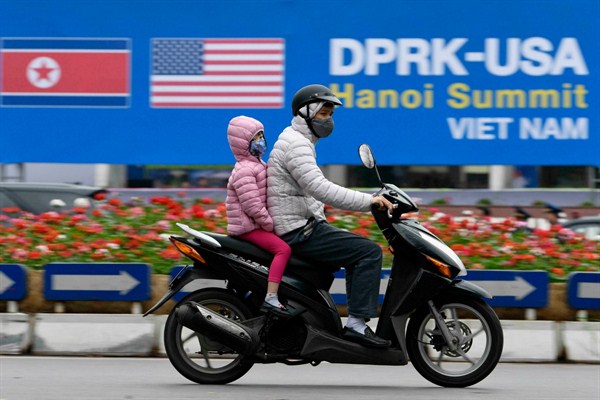Final preparations are underway in Hanoi, Vietnam, for this week’s summit meeting between President Donald Trump and North Korean leader Kim Jong Un. U.S. officials hope that in addition to providing a venue and facilitating logistics, their Vietnamese hosts will offer a dose of potent symbolism. Near the end of the Cold War, Vietnam, like North Korea today, was an authoritarian one-party state with a military-driven command economy, diplomatically isolated and struggling to feed its population. Since introducing market-oriented reforms in the late 1980s, it has grown into a regional economic powerhouse while maintaining its closed political system. It also enjoys increasingly close ties with its erstwhile nemesis, the United States.
North Korea may be more willing to learn from that example now than at any other time in its history. Soon after coming to power in 2011, Kim announced a policy of byungjin, or parallel advancement, reflecting a new dual effort to grow the economy while continuing to enhance the country’s military capabilities. After a string of nuclear detonations and ballistic missile launches that culminated in successful tests of a likely thermonuclear weapon and an intercontinental ballistic missile in 2017, Kim proclaimed last year that no further tests were necessary. His “treasured sword” was complete, and it was time to focus on the economy.
Of course, real economic progress will require easing the web of international sanctions that currently restrict Pyongyang’s trade and financial flows. North Korea depends on China for the bulk of its imports, leading to a large annual trade deficit that is probably unsustainable given the difficulty of procuring foreign exchange reserves under current restrictions. That means securing sanctions relief will be a top priority for Kim and his negotiating team at the Hanoi summit.

